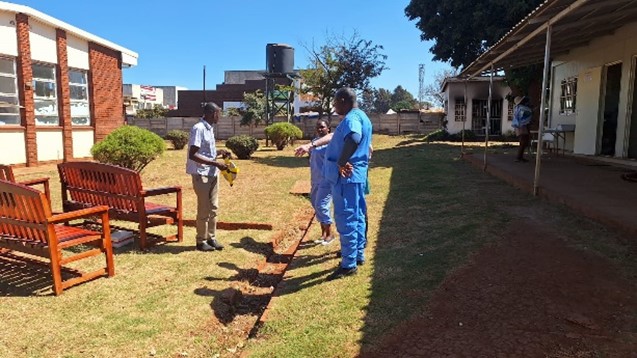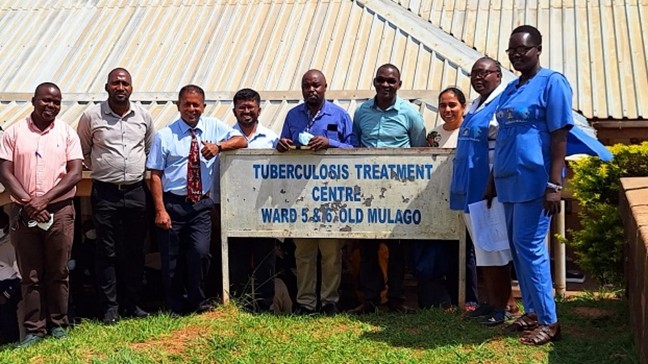Implementation research supported by TDR shows a promising way for enhancing care for people with TB-associated disabilities and related illnesses. Findings from studies across Kenya, Uganda, Zambia and Zimbabwe have helped translate WHO guidance on TB-associated disability into health care practice.
In a multi-country study supported by TDR and partners, health workers assessed 1683 TB patients. One in five couldn't walk short distances of 400 meters in six minutes, and three-quarters had additional conditions such as HIV, hypertension, diabetes, mental health disorders and alcohol dependence. Encouragingly, 85% to 100% of patients were successfully referred for care and started receiving treatment for almost all these illnesses. This research was conducted through the Structured Operational Research and Training Initiative (SORT IT), a global partnership led by TDR.
"This innovative SORT IT approach has equipped the national TB programme with a practical tool to turn research evidence into action — delivering real improvements in patient care," said Dr Henry Luzze, National TB Programme Manager, Uganda. "Empowering health workers with the 'know-how' to better manage TB patients with multiple conditions is a game-changer."
 |  |
Left
to right: TB clinic staff preparing for the 6-minute walking test; TB clinics
staff and SORT IT team in Uganda. Credit: PruthuThekkur
The median assessment time was 29 minutes, and health workers found the process valuable without adding undue burden.
“The findings from this study underscore the urgent need to identify and address TB-associated disabilities as an essential part of TB care, improving health outcomes and quality of life,” said Dr Tereza Kasaeva, Director of WHO’s Global Programme on TB and Lung Health. “WHO’s policy brief on TB-associated disability provides key guidance to support countries in this effort.”
"By combining SORT
IT’s proven training model with innovative real-time data generation and
processing, this study shows how frontline health workers can drive meaningful
change," said Dr John Reeder, Director of TDR. "This is a powerful
example of translating policy into practice for better care for TB patients
worldwide."
We are grateful to TDR donors, including the United States Agency for International Development (USAID) for targeted support for this project over the last three years and the Luxembourg National Research Fund; the Directorate for Development Cooperation and Humanitarian Affairs of the Ministry of Foreign and European Affairs, Defence, Development Cooperation and Foreign Trade of the Grand Duchy of Luxembourg; and the Luxembourg Development Cooperation Agency (LUXAID BRIDGES/24/19411166/TB-Disability) who plan to provide additional support, to replicate this initiative in three additional French-speaking African countries through 2026.
For more information, please contact Dr Rony Zachariah.

